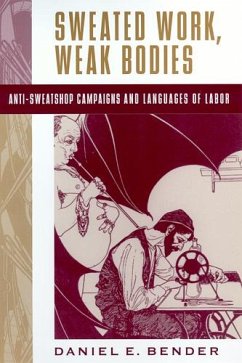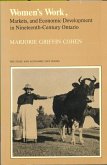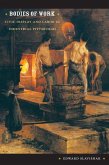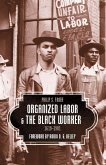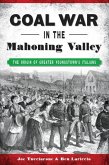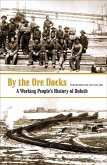In the early 1900s, thousands of immigrants labored in New York's Lower East Side sweatshops, enduring work environments that came to be seen as among the worst examples of Progressive Era American industrialization. Although reformers agreed that these unsafe workplaces must be abolished, their reasons have seldom been fully examined. Sweated Work, Weak Bodies is the first book on the origins of sweatshops, exploring how they came to represent the dangers of industrialization and the perils of immigration. It is an innovative study of the language used to define the sweatshop, how these definitions shaped the first anti-sweatshop campaign, and how they continue to influence our current understanding of the sweatshop. This study links social, political, medical, and cultural histories of the Gilded Age/Progressive Era. Daniel E. Bender explores anxiety over the effects of immigration and industrialization, in particular the racial denegation of immigrants, the spread of diseases, and the breakdown of working-class families. He demonstrates the ways social reformers and public health officials saw the sweatshop as a reflection of Jewish racial inferiority, and how women's participation in anti-sweatshop campaigns that sought, above all, to protect male workers, depended on the ideas of the naturalness of sexual differences.
Hinweis: Dieser Artikel kann nur an eine deutsche Lieferadresse ausgeliefert werden.
Hinweis: Dieser Artikel kann nur an eine deutsche Lieferadresse ausgeliefert werden.

